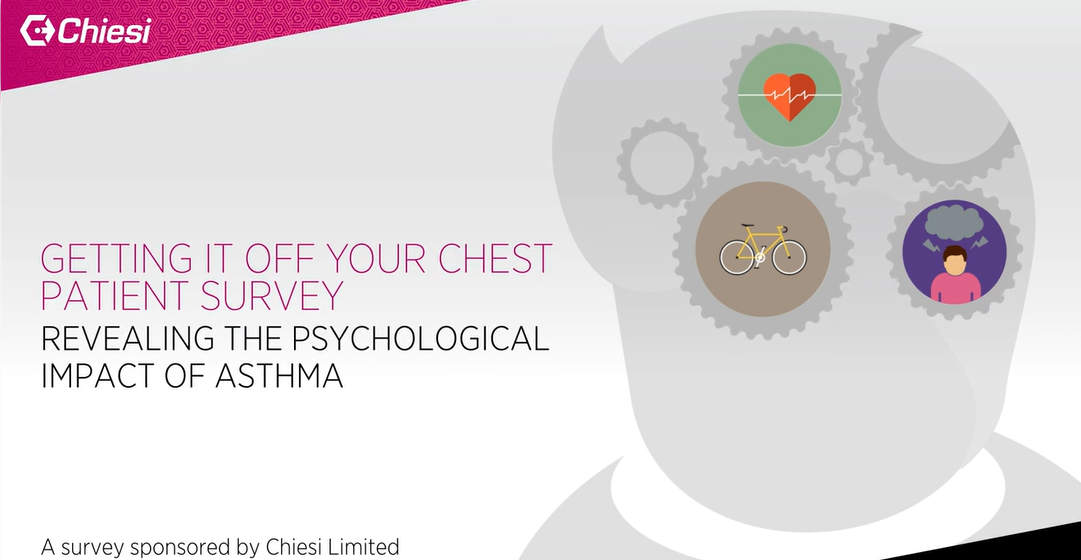Article summary
Asthma leaves many people struggling far beyond their physical symptoms, feeling unable to live life to the full. To better understand the limitations of asthma, we sponsored a survey of 500 patients living with the condition that dug deeper into the specific challenges people with asthma face. The survey highlights the need for mental health-focused respiratory support and is helping us to identify how we at Chiesi can help.

What did we discover?
Being held back from activities is common – and embarrassing to deal with
Nearly half of people surveyed said their condition affected their participation in sports and fitness activities. This is compounded by the fact that people also reported feeling self-conscious when they can’t participate in certain activities due to their asthma.1
Some of your patients might find exercise challenging. What they might not know is that getting their heart rate up could actually improve their asthma symptoms.2 Asthma + Lung UK has a great list of activities and practical advice you can direct your patients to, so they can find the right type of exercise for them and their asthma.2
Many people with asthma experience exercise as a trigger for their condition, making them wary of doing any activity.3 Equipping patients with the right knowledge about proper asthma management and why symptoms should not be ignored can help people living with asthma take more control over their condition.4
Asthma and mental health were connected1
Many respondents stated their asthma makes them anxious (37%), with even more believing it makes their loved ones anxious too (44%). Many people had been diagnosed with anxiety (31%) or depressive disorders (28%), and the survey showed that people’s asthma symptoms were negatively associated with their mental health – nearly half of those surveyed found their asthma symptoms get worse when their mood is low (49%).1
Living with asthma can be a heavy burden, but there are things your patients can do to help manage their mental health — just recognising how changes in their mood may relate to their symptoms, or seeking support for their mental wellbeing, may be beneficial.5 There are lots of online sources that offer patients practical and emotional tips for living well with asthma.5
There is an opportunity to offer psychological support
While over 80% of people in the survey had never discussed the psychological impact of their condition with a healthcare professional, around half believed doing so would help them better manage the emotional impact of their asthma.1
The impact of asthma on mental health, including physical health factors that can influence quality of life and asthma’s role in psychological dysfunction, are evolving areas of research and discussion.6,7 While data are being generated, it is clear asthma is not just a physical condition and patients’ mental wellbeing needs to be considered.
At Chiesi, we are committed to supporting respiratory care in the UK. For the past 40 years our mission has been to help people breathe a little easier – and we continue to look for the best ways to support you and the people you care for.









